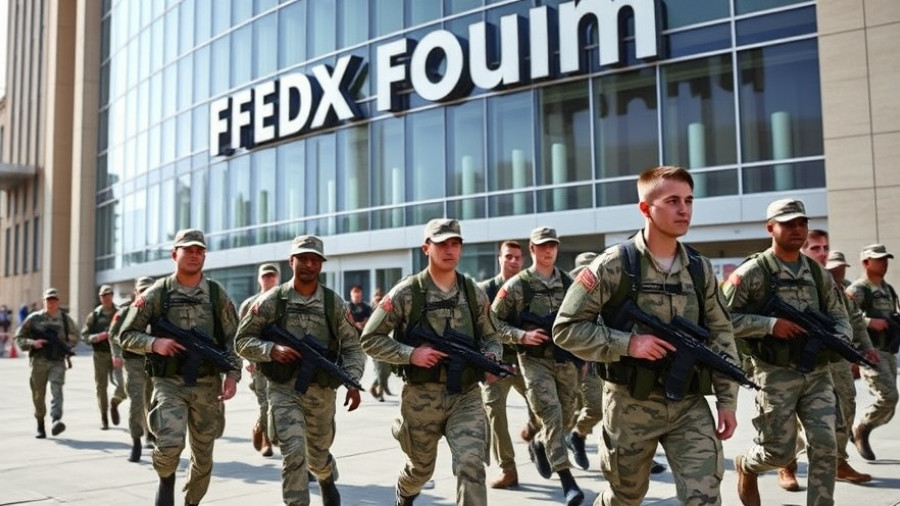
Tensions Rise as Tennessee Lawmakers Challenge National Guard Deployment
In a dramatic legal showdown, seven Tennessee officials, including Shelby County Mayor Lee Harris, have filed suit against Governor Bill Lee over the deployment of the National Guard in Memphis. This lawsuit underscores the escalating tensions surrounding crime and law enforcement in predominantly Democratic-led cities, particularly as the National Guard takes on a visibly enhanced role in public safety.
Understanding the Context: Why Memphis?
Memphis, often characterized by its vibrant culture and rich history, has recently been in the spotlight for its high crime rates. As a reaction to increasing concerns about public safety, the Trump administration has pushed for a stronger federal presence in cities it deems troubled. In this context, the decision to deploy the National Guard to Memphis has evoked both support and strenuous objection among local leaders.
Historically, the legitimacy of military involvement in domestic law enforcement has been fraught with controversy. The principles established by the Founding Fathers maintain that military power should not infringe upon civilian authority, and critics argue that deploying the National Guard in this manner disrupts local governance and autonomy.
Key Components of the Lawsuit
The lawsuit asserts that the Governor has overreached his constitutional powers by deploying troops to Memphis without evidence of a rebellion or invasion—conditions necessary under the state constitution for such action. Notably, the case highlights that the deployment occurred without formal requests from Memphis or Shelby County officials, which further complicates the legal situation.
Additionally, legal representatives emphasized the nuances of local governance, pointing out that local officials are best equipped to assess and respond to public safety needs. Critics of the National Guard's involvement, such as Mayor Lee Harris and other officials, are advocating for community-focused solutions rather than military intervention.
Community Reactions: A Mixed Bag
The atmosphere in Memphis is one of apprehension coupled with urgent calls for action. Community organizers have voiced concerns about the potential for exacerbating racial tensions and inflaming fears within immigrant communities. The presence of military personnel on the streets has prompted many to ask whether increased policing suppresses legitimate community grievances rather than addressing the root causes of crime.
In contrast, some local leaders and constituents have expressed support for the initiative, highlighting a perceived decrease in crime incidents as a result of increased law enforcement presence. State Senator Brent Taylor articulated optimism for the efforts, suggesting that a safe environment fosters growth and prosperity for Memphis residents.
The Court's Role: New Developments Ahead
Despite these mixed reactions, Davidson County Chancellor Patricia Head Moskal denied a request for an immediate injunction against the troop deployment, instead scheduling a hearing for November 3. This ruling has heightened tensions as residents and lawmakers await further clarity on the legality and implications of this military presence.
As the case progresses, it will not only impact Memphis but could establish precedents regarding the limits of state power in regional law enforcement and the interplay between local governance and federal authority. For homeowners, this development is crucial in understanding how it could influence community safety, resource allocation, and local governance autonomy.
Insights and Actions Moving Forward
This legal battle is not just about military presence; it reflects deeper societal concerns on governance, safety, and civil liberties. Understanding these dynamics is essential for homeowners in the MidSouth who value their right to live in safe, thriving communities. Community-focused approaches that prioritize local input and investment in social services might be more sustainable than militarized responses to crime.
Should you wish to stay informed and engaged with community initiatives, consider attending local meetings, participating in community forums, or reaching out to your elected officials. Your voice matters in shaping the narrative of public safety in our neighborhoods.
 Add Row
Add Row  Add
Add 



Write A Comment